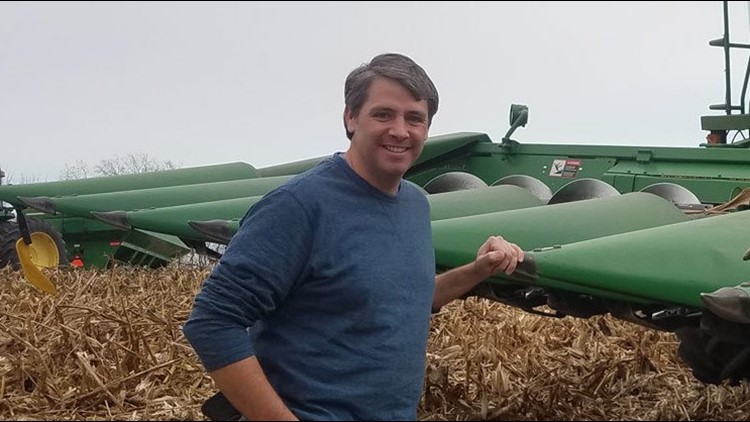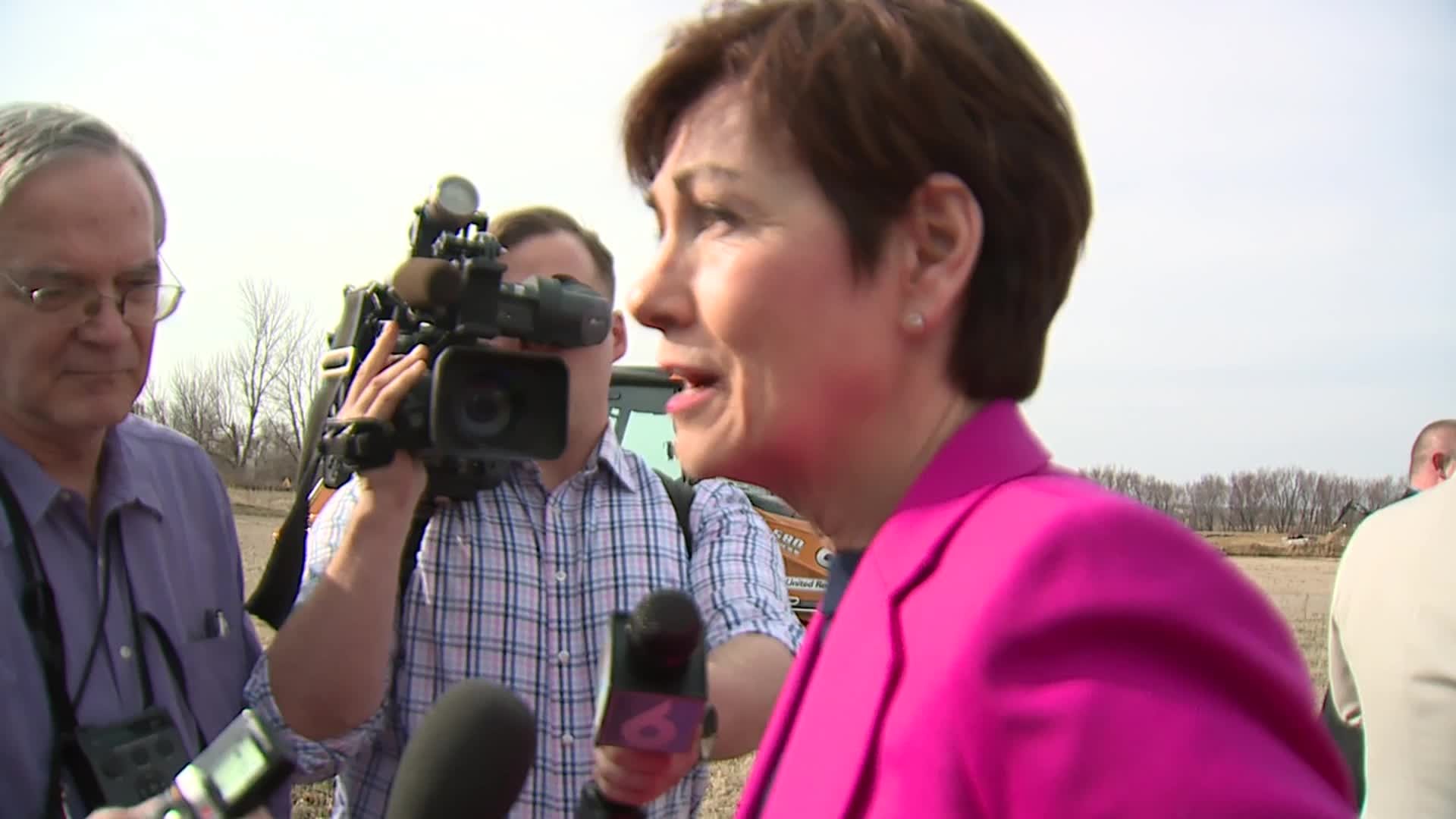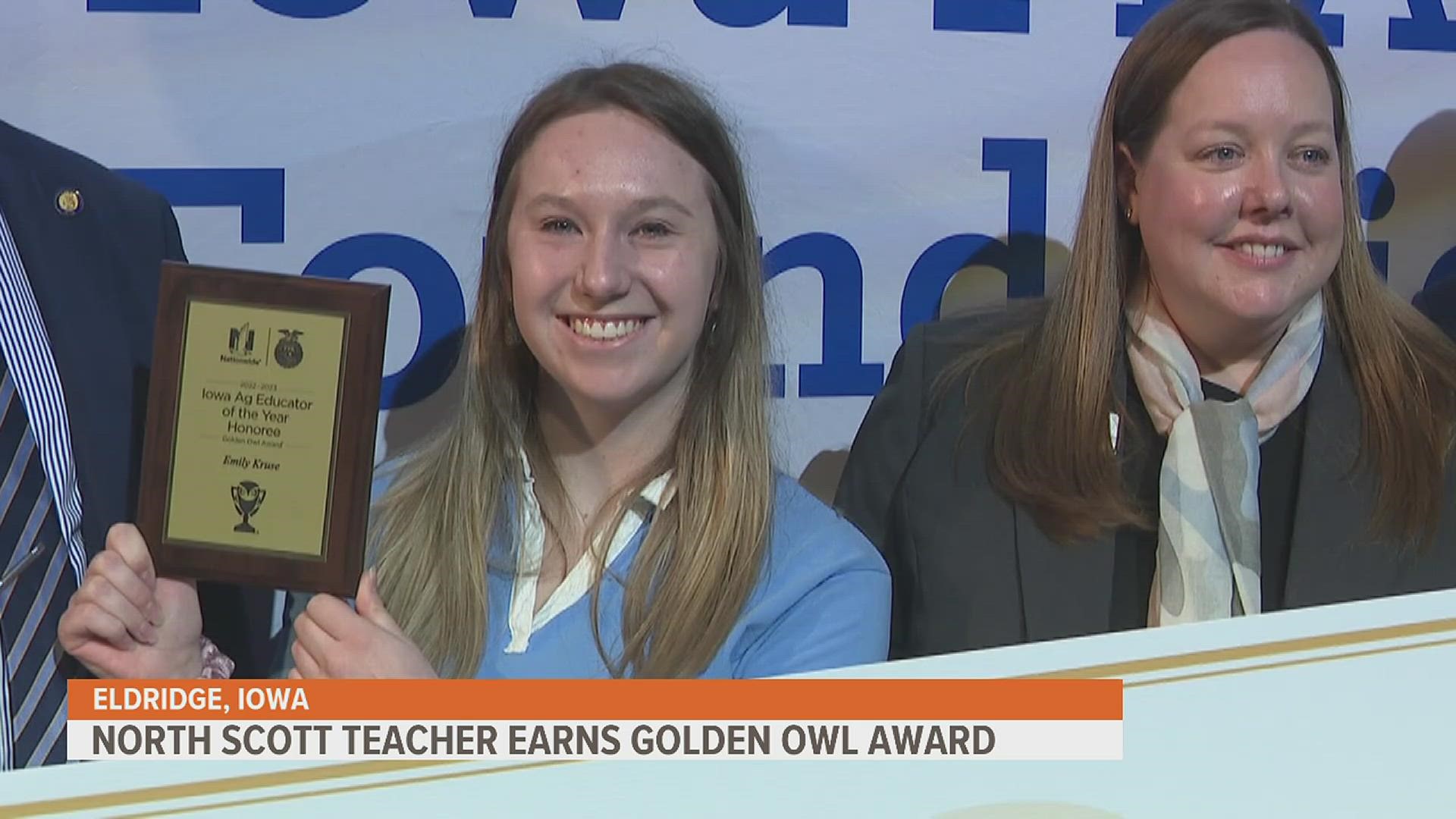With fears increasing over how President Donald Trump’s trade policy will impact them, many rural Iowa farmers are voicing their anger over his lack of solutions and coming up with their own.
Following Gov. Kim Reynolds meeting with Trump to push for protections against tariff retaliations in early April, rural Iowa Democrats convened on a call to demand concrete and thorough solutions for farmers and the agriculture-based economy.
Chris Petersen, a hog farmer and Vice Chair of the Democart’s Rural Caucus, said that GOP leaders need to “quit listening to agribusiness and monopolies—who are taking control of profits—and listen to actual farmers.”
Petersen, who is from Clear Lake, emphasized that he is “proud to be a farmer, [and] proud to be from rural Iowa.”
He spoke for his associates when demanding that Trump specify concrete solutions to the impending trade war he has been beckoning.
“How is he going to make it up to farmers?” asked Petersen. “He needs to be pressured to say how.”
Troy Price, the chair of the Iowa Democratic Party, is from Durant. He joined Petersen in pinning blame on Gov. Reynolds and GOP leaders for not doing enough to stand up to Trump on behalf of farmers and the state’s agriculture economy.
Price said that he would have preferred to see Reynolds protesting what’s happening to rural communities outside the White House instead of praising Trump for his actions from inside.
“This shouldn’t be a partisan issue,” Price said. “We should all be speaking with one voice as Iowans about the impact on our state economy. Unfortunately, we are only seeing tepid, empty rhetoric from the GOP.”
Price made sure to emphasize that the point of contention wasn’t limited solely to the issue of tariffs.
“We’ve seen an economic development strategy out of Gov. Reynolds’ office that prioritizes large, out-of-state corporations, leaving small business owners like my parents behind.”
Coming from a small town like Durant, Price spoke firsthand of the struggles he has seen his community face under Republican leadership over the last several years.
“Rural communities have been hurting for years. We’ve seen cuts to our schools, which are like community centers in small towns,” he said. “We’ve seen the privatizing of Medicaid, putting healthcare at risk for hundreds of thousands of Iowans and having a severe adverse effect on rural hospitals and clinics across Iowa.”
Bryce Smith, a small business owner from Dallas County, said his income is directly impacted by the amount of money that farmers have left to spend.
Smith cited Trump’s neglect of Iowa’s renewable fuels and biofuels industries to back up his opinion that the “administration takes for granted Americans who supported [him]…thinking that it would positively impact their lives. The EPA changed everything, leaving farmers and the fuel industry behind. It’s disrespect for rural Iowans who make a living off agriculture.”
Worst of all, Smith said, is that the trade war could be prevented. “Instead, they hope it will be swept under the rug and that everyone will forget by fall elections. Well, we won’t.”
Smith made it clear that farmers and small businesses would stand up for themselves and outline solutions to protect and revive the rural economy where he sees Trump and Reynolds failing to do so.
“I think one of the main reasons that farmers are concerned over the trade is that no one is really sure that there is a plan. No one is really sure what is going to be gained in the end,” said Tim Gannon, the Democratic candidate for Secretary of Agriculture.
Gannon pointed out that Trump had pulled the U.S. out of the Trans-Pacific Partnership (TPP) shortly after being elected, but recently reconsidered it in early April, followed almost immediately by a return to attacking it as a bad deal for the U.S.
Trump’s stance on NAFTA is even more uncertain for the agriculture economy.
“Mexico—our largest partner for corn and pork exports—has started looking elsewhere. Once you lose that market share, you don’t know if you’ll get it back,” said Gannon.
“I think we’ve seen that the administration is pretty good at breaking things -- it’s yet to be determined whether they’re able to put things back together in a way that is beneficial for everyone.”
Gannon posited a few solutions if prices go low and stay low through harvest, meaning many farmers will end up with indemnity payments on their policies:
“I think what’s going to be important is how we develop new markets for us to sell our products, and one of the tools the USDA is a commodity credit corporation,” said Gannon. “We need to do more research to create a value-added agriculture industry, the way we helped create the biofuel industry.”
“We need to invest in Iowa State University rather than implement mid-year cuts,” said Gannon. “We need to create jobs and industries to put more money in farmers pockets.”




